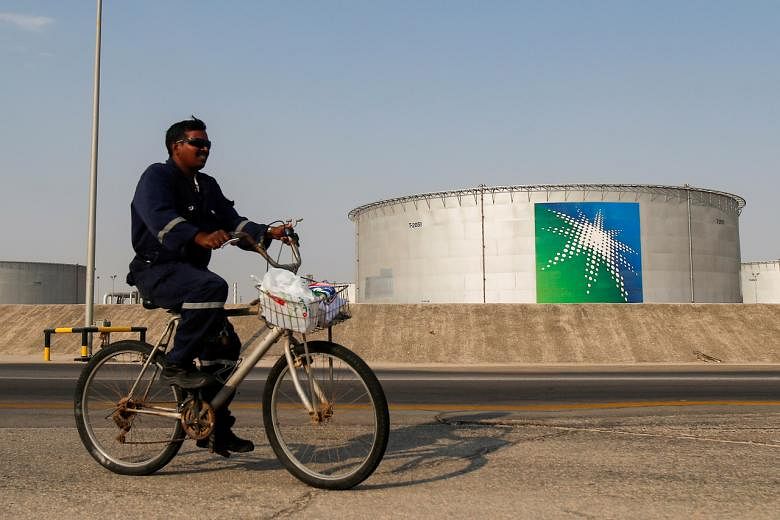SINGAPORE (BLOOMBERG) - Saudi Arabia might have just signed off on one of the most notable oil output deals in history, but challenges lie ahead as the kingdom faces keen competition from rival suppliers to the prized Asian market.
That perhaps explains why the de-facto leader of Opec slashed its official selling prices to Asian customers for May by larger-than-expected margins this week. Eight of eleven refiners across the region surveyed by Bloomberg welcomed Saudi Aramco's aggressive marketing strategy, while the remaining three said they had expected even steeper discounts.
Despite the price war being defused over the weekend, there's no reason to think that the deluge of cheap crude washing over Asia will ebb quickly as the coronavirus pandemic continues to depress demand. Varieties such as Russia's Urals, Mars from the US and several Abu Dhabi grades crude were being offered in recent weeks to buyers on a delivered basis with flexible arrival dates as traders moved supertankers filled with unsold oil toward Asia.
State-owned oil company Saudi Aramco has pledged to boost output to 12.3 million barrels a day in April as it cut the May official selling price of its flagship Arab Light crude to Asian customers by US$4.20 a barrel from the previous month, exceeding estimates for a reduction of US$3.63. That was even after it signed a deal with other producers to cut global output by around 10 per cent to try and support prices.
STRONG COMPETITION
About 20 million barrels of April-loading crude remains unsold from West Africa alone, according to traders who asked not to be identified. That's on top of unsold May-loading supplies from the region that are estimated to be at least triple that of the month before, they said.
Crude from non-Saudi producers in the Middle East is also available with grades including Oman and Upper Zakum being offered on a flexible basis, allowing buyers' to pick out their preferred arrival periods, three separate traders said.
As well as the supply glut, Aramco and others are grappling with demand that's continuing to shrivel, particularly in India, which has enforced the world's biggest lockdown. Iraq said earlier this week that it had trouble marketing its crude amid the supply glut, lower prices and what the country's oil minister called a "recession" in refining around the world.
Refiners in Asia had until Tuesday to decide on the amount of oil they wanted to buy from Aramco. At least two of the processors said they would be asking for normal volumes for May. Other producers such as Kuwait, Iraq and Abu Dhabi are set to issue their official prices shortly.
Saud Arabia's crude exports so far in April stand at 9.3 million barrels a day, according to tanker-tracking data compiled by Bloomberg. That compares with 6.8 million barrels a day through the first two weeks of March. What's more, there are at least 10 supertankers with the capacity to haul a combined 20 million barrels of oil waiting to load at the Saudi port of Ras Tanura in the coming days.
"The arrangement is from May," Prince Abdulaziz bin Salman, the Saudi oil minister, told reporters on a conference call on Monday (April 13) in reference to the Opec+ agreement. "All of April was sold."
In other words, the price war is still on for now. So far, the market hasn't been impressed. Global benchmark Brent crude fell by as much as 6 per cent in London on Tuesday.
Traders are awaiting similar figures from other Gulf producers like the United Arab Emirates and Kuwait, which generally follow the Saudi lead on pricing and production. They also have little incentive to cut output sooner than required.
UAE Energy Minister Suhail Al Mazrouei said on his Twitter account after the meeting that the country "is committed to reducing production from its current production level of 4.1m" barrels a day. That's at least 1 million barrels a day higher than it pumped in March, according to Bloomberg estimates.

